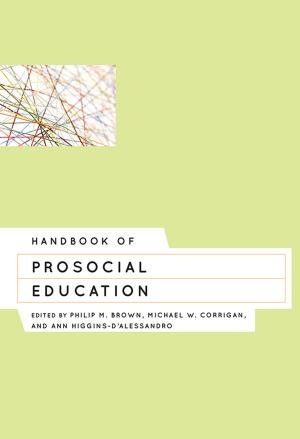Merleau-Ponty and Modern Politics After Anti-Humanism
Nonfiction, Social & Cultural Studies, Political Science, Politics, History & Theory| Author: | Diana Coole | ISBN: | 9781461640127 |
| Publisher: | Rowman & Littlefield Publishers | Publication: | August 28, 2007 |
| Imprint: | Rowman & Littlefield Publishers | Language: | English |
| Author: | Diana Coole |
| ISBN: | 9781461640127 |
| Publisher: | Rowman & Littlefield Publishers |
| Publication: | August 28, 2007 |
| Imprint: | Rowman & Littlefield Publishers |
| Language: | English |
In this important new book, Diana Coole shows how existential phenomenology illuminates and enlivens our understanding of politics. Merleau-Ponty's focus on embodied experience allows us to approach political life in a manner that is both critical and engaged. With breadth of vision and penetrating insight, Coole demonstrates that political questions were always central to Merleau-Ponty's philosophical project. Her examination of his complete body of work presents us with a rigorous philosophy that maintains our capacities for agency despite moving beyond a philosophy of the subject.
Merleau-Ponty and Modern Politics after Anti-humanism is the first major work on Merleau-Ponty's political philosophy in over two decades. Coole presents his later philosophy of flesh as the outline for a new understanding of the political, which forms the basis for reconsidering humanism after, but also through, anti-humanism. She also shows how Merleau-Ponty's concern with contingency anticipated arguments by thinkers such as Derrida, Foucault and Deleuze, while sustaining a robust sense of politics as the domain of collective life. The result is a philosophical analysis that speaks to our contemporary concerns in which we seek a coherent account of our actions, our environment and ourselves, such that we might become exemplary political actors within a complex and uncertain world.
In this important new book, Diana Coole shows how existential phenomenology illuminates and enlivens our understanding of politics. Merleau-Ponty's focus on embodied experience allows us to approach political life in a manner that is both critical and engaged. With breadth of vision and penetrating insight, Coole demonstrates that political questions were always central to Merleau-Ponty's philosophical project. Her examination of his complete body of work presents us with a rigorous philosophy that maintains our capacities for agency despite moving beyond a philosophy of the subject.
Merleau-Ponty and Modern Politics after Anti-humanism is the first major work on Merleau-Ponty's political philosophy in over two decades. Coole presents his later philosophy of flesh as the outline for a new understanding of the political, which forms the basis for reconsidering humanism after, but also through, anti-humanism. She also shows how Merleau-Ponty's concern with contingency anticipated arguments by thinkers such as Derrida, Foucault and Deleuze, while sustaining a robust sense of politics as the domain of collective life. The result is a philosophical analysis that speaks to our contemporary concerns in which we seek a coherent account of our actions, our environment and ourselves, such that we might become exemplary political actors within a complex and uncertain world.















